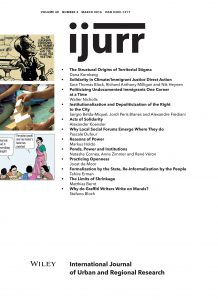Housing Associations as Third Sector anchor institutions: examples from England and Austria
Housing associations are well-known actors in the provision of affordable housing, not only in England but also in a number of other European countries. Whilst typically being classed as actors of the Third Sector, that is, neither state-owned nor profit-driven, their institutional and regulatory set-up differs widely in different countries. In recent years, there is increasing interest as to the role of housing associations, not just as housing providers but as actors who are influencing and shaping local communities. This...



















